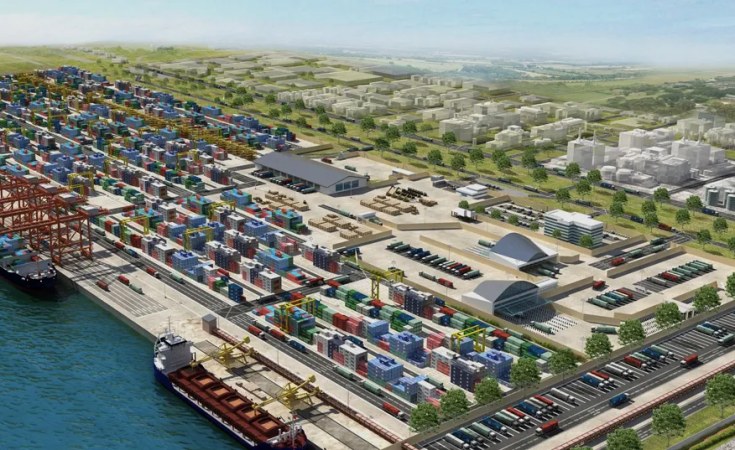Abuja — Nigerian authorities have hailed the launch of a deepwater seaport in Lagos they say will create 300,000 jobs and reduce shipping bottlenecks. While the new port is expected to reduce losses due to congestion, shipping industry experts say Nigeria's poor roads and rail connections to ports also must be improved.
The launch by President Mohammadu Buhari during his two-day visit this week to Lagos signaled his government's effort to grow Nigeria's economy through infrastructural development.
The 1.5-billion-dollar, Chinese-built Lekki Deep Sea Port sits on 90 hectares of land in the Lagos Free Trade Zone -- the biggest port by size in West Africa.
Authorities say ships docking at the port could be up to four times the size of vessels at the state's Tin Can and Apapa ports. They expect it will ease delays and congestion at ports and increase earnings by up to $360 billion in coming years.
Efioita Ephraim is a manager at Ports and Terminal Nigeria, Ltd.
"The current ports we have in the country are located along rivers, tributaries and that's why there are limitations. It's a welcome development to have an infrastructure like this in our country. With this, larger vessels will be able to berth at our ports and we shall be in competition with neighboring countries such as Cotonou [Benin]," said Ephraim.
Most of Nigeria's seaports were built many decades ago and are either closed or operating below capacity.
Nigeria loses an estimated $1 billion a year to delays and bottlenecks at ports. To address the problem, the Nigerian Ports Authority launched an automated process for clearing cargo at ports.
Abiodun Gbadamosi is the former general manager of Nigeria's western ports. He said the new deep sea port at Lagos will add to Nigeria's economic progress and create jobs.
The country's bureau of statistics says Nigeria's unemployment rate is 33 percent.
"What Nigeria needs now are jobs, jobs and more jobs, and that's going to go a very long way. It's going to improve the commerce around that area. It's highly commendable and it's going to actually propel the state. Then Nigeria can now push forward the idea of being hub for the region," he said.
Ephraim said authorities must improve road and rail accessibility to the area.
"If the items are to be conveyed out of the port and into the port by road, then I would expect the multimodal mode of transportation be encouraged to and from the Lekki deep sea port, rail water and road transportation."
China is one of Nigeria's biggest lenders and has been funding rail, road and power projects.
The first commercial vessel is expected to arrive in the port this Sunday.


